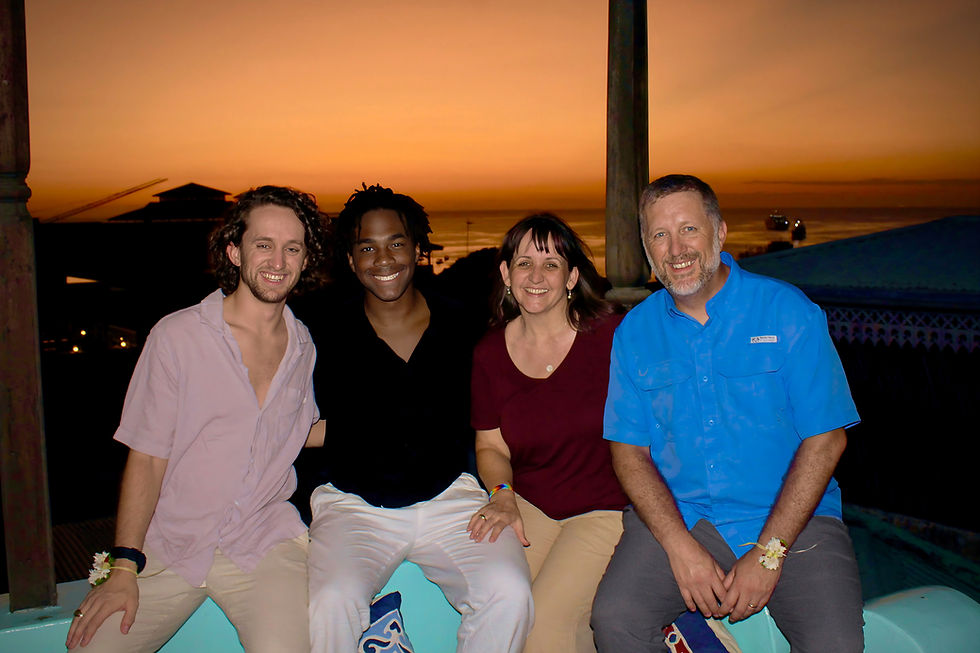Gratitude for Richard Hays' Changed Mind
- Sally Gary

- Aug 13, 2024
- 3 min read
Updated: Dec 10, 2024
In 2006 an LGBTQ advocacy group called “Soulforce” visited the campus of Abilene Christian University, where I was teaching at the time. Soulforce travelled across the country, targeting Christian universities who had language in their student codes of conduct prohibiting same-sex relationships. Their desire was to engage in dialogue with administration and work toward removal of the prohibitive language. Very few universities accepted their invitation to visit campuses.
But Abilene Christian did.
ACU hosted Soulforce's chartered busload of travelers for two full days, providing lodging at a nearby hotel and engaging in conversation over meals on campus. We listened to their perspective and they listened to ours. Those were hard conversations, but much good came from them.

To prepare for Soulforce’s visit to campus, the Bible faculty met with all of its undergraduate and graduate students and discussed the different views of Scripture on sexuality at the time. One of the resources distributed as a guide to understanding the university’s posture at the time was a single chapter from a book by New Testament scholar, Richard Hays, titled The Moral Vision of the New Testament. Longtime professor and dean of Duke Divinity School, Hays held to a traditional sexual ethic, upholding marriage between a man and a woman as being the only marital relationship blessed by God.
Since I was on the committee that planned for Soulforce’s visit, I received a mimeographed copy of that chapter. I remember taking it home and reading it, underlining the parts that upheld what I’d always been taught that the Bible said about my sexuality. Richard Hays confirmed what all the biblical scholars I looked up to at the time believed to be true.
Hays confirmed what all those teachers had taught me to believe about same-sex relationships.
Namely, that I might not have chosen to be gay, but to be right with God, I would have to spend the rest of my life alone.

Then last week Richard Hays's new book that he co-authored with his son, Christopher, entitled The Widening of God’s Mercy, arrived on our doorstep.
My wife, Karen Keen, wrote a review of the book for Baptist News Global and I teared up when I read this:
“But now he is apologizing for that chapter and the way it has been used against LGBTQ people. He writes, ‘I bear responsibility for the pain … caused to many believers who belong to sexual minorities. And for that I am deeply sorry.’”
It’s one thing for a biblical scholar to be willing to reexamine previously held beliefs. It’s quite another to realize the harm expressing those beliefs caused and actually apologize.
That meant the world to me.
I held to a traditional view for a long time, too. I taught others according to the ways I had been taught and perpetuated the damage of that perspective.
And for that I, too, am truly sorry.
What a difference it would have made in my life, and in the lives of countless others, had we been willing to reexamine our perspective long ago. But thank God, we're doing it now.
I’m so very grateful for hearts and minds like Richard's and Christopher's. Thoughtful, devoted Christ-followers and teachers who are willing to go back to Scripture and look again. Not discarding God’s word, but going deeper, looking at it with fresh eyes.
And having the courage to say publicly, “I have changed my mind.”
We’re honored to welcome Richard to the CenterPeace Conference at Wilshire Baptist Church in Dallas on October 24 – 26. Richard will share his own journey in a main stage presentation and then Karen Keen will interview Richard about his process in writing The Widening of God’s Mercy.










Comments